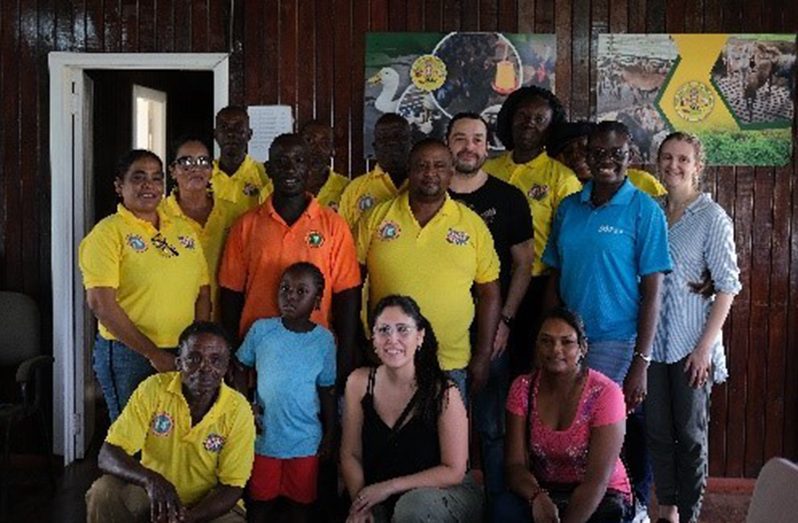THE Farmers Organisations for African, Caribbean and Pacific (FO4ACP) FO4ACP programme, which focuses on empowering farmers’ organisations to participate in sustainable food value chains effectively, continues to progress well under the partnership of the Food and Agriculture Organisation of the United Nations (FAO) and PROCASUR.
From August 7 to 14, the partnering team engaged some 60 farmers from eight Farmers’ Organisations (FOs) in six regions of Guyana to build functional and operational capacities to improve the quality of services they provide.
This exercise is a continuation from last May when the team visited these FOs following a National Learning Route under the theme “Come up in the Value Chain.”
During those visits, each organisation was tasked with developing a short term innovation plan that will enable them to increase their associative and entrepreneurial capacities.
To support the implementation of these innovative plans, FAO and PROCASUR convened a nine-day technical mission to connect the innovation plans with a medium-term organisational development plan that will receive technical and financial support from the FO4ACP programme.
These development plans, which have been individually tailored based on each organisation’s unique circumstance, geography, and needs, will focus on a number of areas, including business development, marketing, good governance practices, and production enhancements.
The FOs who benefitted from this exercise were the Central Mahaicony Perth Village Farmers Association in Region Five; West Berbice Sheep and Goat Farmers Association in Region Five; Pomeroon Beekeepers Association in Region Two; Pomeroon Export Producers Association in Region Two; Gibraltar/Fyrish Farmers Association in Region Six; Mocha Arcadia Multipurpose Agriculture Co-operative in Region Four; Medicine from Trees in Region Nine and Blue Flame Women’s Group in Region One.
The FO4ACP project is funded by the European Commission through The International Fund for Agricultural Development (IFAD) and is implemented across Regional Latin America and seven Caribbean countries, including Guyana. (FAO)




.jpg)









